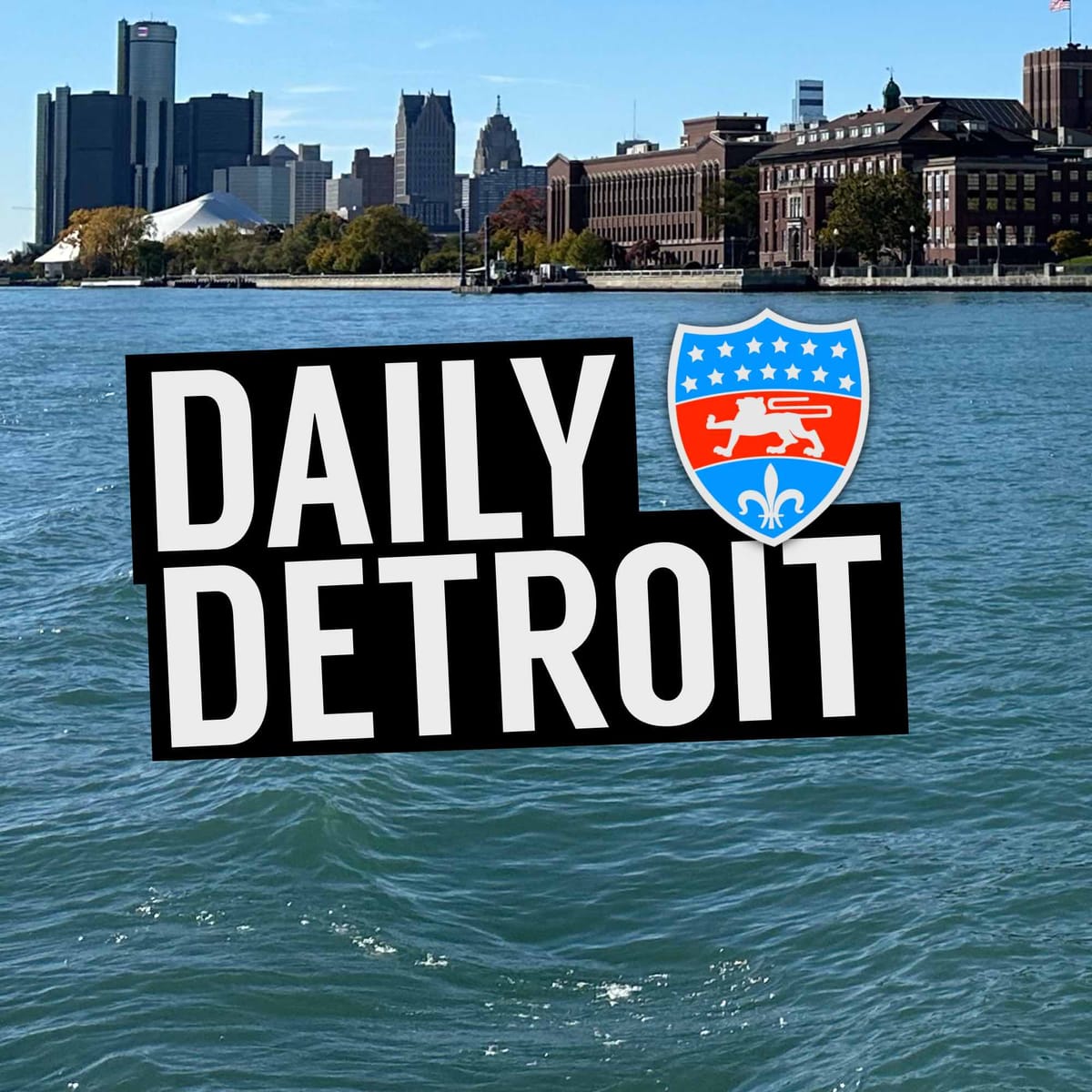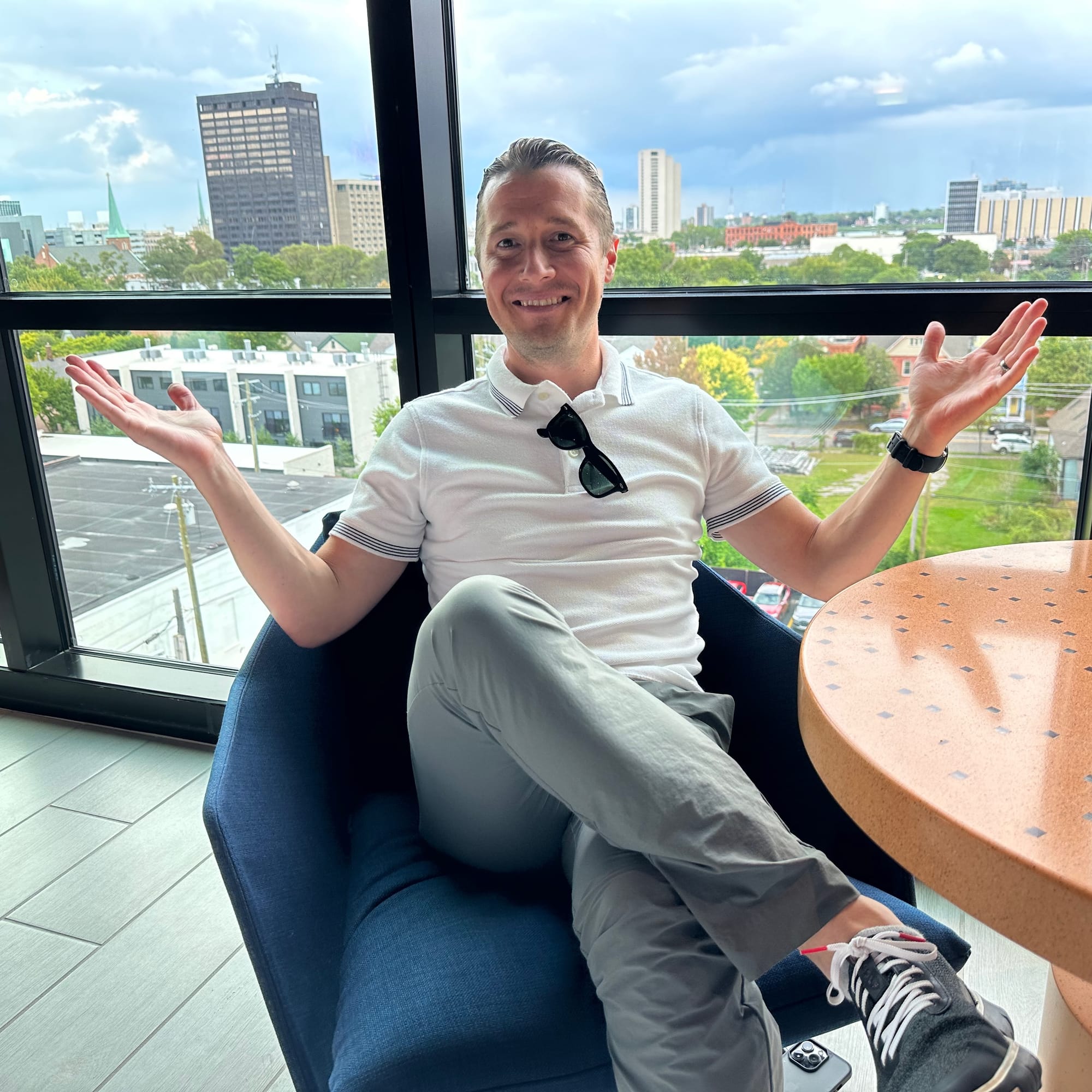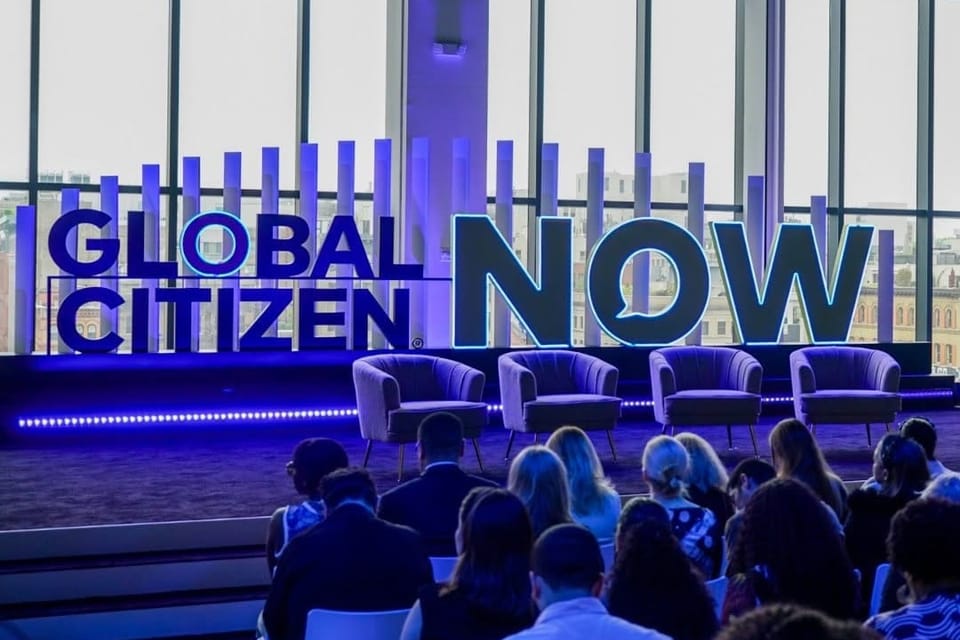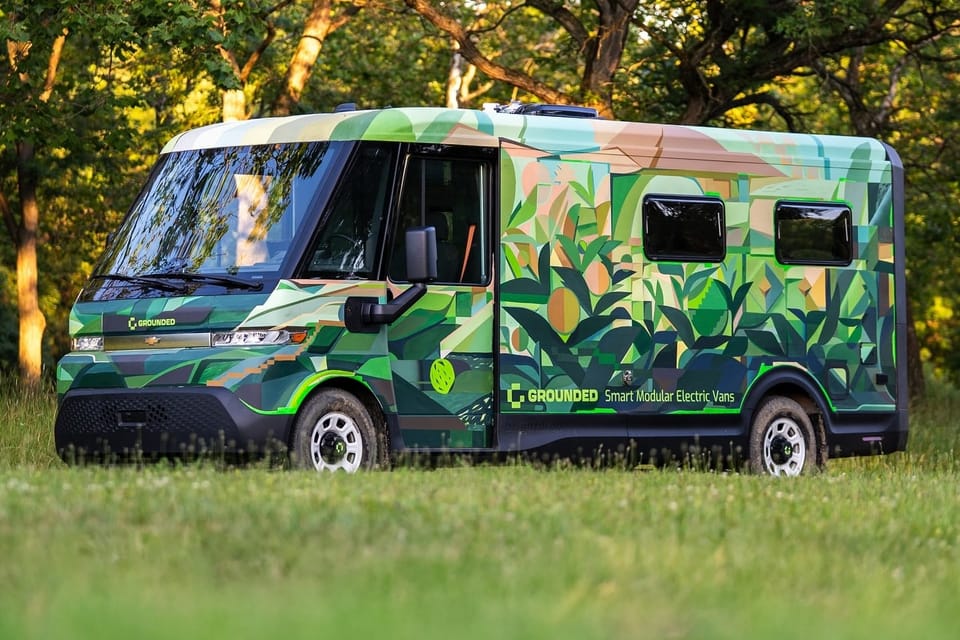On today's show, we talk about General Motors ending Cruise, as well as the wider autonomous space - and how when we talk to listeners most people don't actually want to own a self driving car. After all, GM is in the business of selling cars.
We get into Waymo's large lead in the Robotaxi space, and how we're startng to see them far more often in Metro Detroit.
Plus, we preview the 2025 Detroit Policy Conference - with a lineup including Detroit Mayor Mike Duggan, Richard Florida, Johnnie Turnage, Santa Ono and more.
Listen in the player below, and scroll down for a complete transcript.
We'll be there, you can sign up at https://www.detroitchamber.com/detroit-policy-conference/2025-detroit-policy-conference/
Daily Detroit shares what to know and where to go in Detroit every day.
Find us on Apple Podcasts: https://podcasts.apple.com/us/podcast/daily-detroit/id1220563942
Or sign up for our newsletter: https://www.dailydetroit.com/newsletter/
Jer Staes: Hello, and welcome to your Daily Detroit! I am Jer Staes, and it is Friday, December 13, 2024. And we are sharing what to know and where to go in southeast Michigan on your Daily Detroit. Joining me across the table at TechTown is none other than Mr. Friday, Devon O'Reilly. How are you?
Devon O'Reilly: I'm cold, Jer. I'm really cold.
Jer Staes: But is it so cold in the D?
Devon O'Reilly: It's really cold in the D today, but the sun is shining through the windows of TechTown, warming my heart and my body.
Jer Staes: Last night, there was a point where it really felt like whiteout conditions. The whole house was shaking with the wind. It was crazy.
Devon O'Reilly: Yeah, it got pretty rough. There was a lot of snow blowing around today. Hopefully, everyone got to work safely if you were venturing out. But roads are pretty fine now. We're all right. We're used to this in Michigan.
Yeah. If you have been around Michigan for a while, you would know that this is coming every December, January, February. You just kind of get ready for it, get out the big coat. You know, there is part of me that's like, there isn't weather too cold, but it's, there is dressing wrongly for the weather, right? Like, if you dress right, you can handle most anything, I think.
So. Protecting your extremities are very important in a temperature, like this, 100%.
Well, today's episode, we're going to talk about a couple of things that are coming up as we are racing towards the holidays.
Yeah, it feels, they are upon us. There's only a couple weeks of work left. I think a lot of our listeners probably are in the same boat where, after the end of next week, your work is probably shutting down. I mean, unless you work in the service industry or something, where you're going to continue to kind of work through the holidays. But most office type jobs are just shutting down after next week.
And, just so people know, we will go on an abbreviated schedule between Christmas and New Year's. I think we're going to do two or three episodes. We'll be a lot more scaled back. Devon O'Reilly, I think that we're going to catch up next week. I'm hoping to do our big end of year predictions episode.
That'll be a fun one.
Maybe, we can get Norris Howard involved.
That always makes it fun.
Absolutely!
As long as you don't feel outnumbered.
I'm used to it now. Yeah, I'm used to being the minority party of the east side.
Fair enough.
All right, let's get into a couple of stories. One is connected to a major local brand, but doesn't all happen here. Cruise shut down this week. That's the autonomous unit of General Motors.
Well, they said they're shutting it down, pulling the funding. That takes some time to happen, absorbing some of the employees, and some are going to lose their jobs. But I think this opens up a wider conversation about autonomous and self-driving vehicles.
And Devon O'Reilly, for listeners who don't know, you've been around the mobility space for a while. And in fact, your job title for a while literally had the word mobility, which relates to all this stuff in it.
Yeah, that's the word we use for everything. The movement of goods, people, services, mobility. That is the term because automotive is just like such an outdated term for what's going on because, you know, how many people actually work in automotive?
So some might say, why are we talking about Cruise? It's dead. But what's a big deal that it's dead? It's a big deal that it's dead. And I think it would deserve some unpacking.
It's financially a big deal. It's … for the narrative, It's a big deal. I think that with electric vehicles, this may even be larger in the sense that we really got out over our skis with autonomous vehicles and what they were going to be able to do. You know, I would fully admit if you would have talked to Devon five years ago, 2019, let's say. I was getting fed a lot of very bullish takes on autonomous vehicles. And I would have probably told you that you're going to see autonomous vehicles by 2024, certainly 2025, we'd see kind of start to proliferate in the autonomous vehicles.
There are people telling me … they had young kids, and they were like, these are people in the industry, by the way. My kid's not going to end up getting a driver's license because we're just going to be driving. You know, we'll have autonomous cars by the time they're 16. I think we were kind of feeding into a lot of our own.
It was kind of a circle narrative, where the industry was telling us what was going on and then those people were feeding the general public. And it just got to the point where we thought it was right on the cusp. And we're now having to really pull back the reins as far as our expectations. And now companies are really pulling back the reins financially.
Cruise had some specific issues, especially after that tragic incident, where that person was run over and dragged. And that was the catalyst I think for, for a true reset when it comes to General Motors and looking into the box of Cruise instead of it being a hands-off investment and saying what's actually in here, what are the things that we've included and not included. And that I think helped precipitate a whole waterfall of events that led to this situation.
On top of that I feel like General Motors is realizing what Ford did and what the public appetite really is now in tech circles, and online people get really excited about self driving cars. There's a lot of buzz about things with Tesla and things like that, but consistently I find that the general public is not as interested as a full product in self-driving cars. In fact, we ran a little social survey. Now this is not scientific, but over with our social following: 56% of our listeners do not want a self driving car. 12%, maybe 18% yes, but they're not ready yet. And only 13% say yes right now.
So there's a couple things with that one. Cruise was really built around the robo taxi kind of thing. So it was more like that the investment was that we were going to have these robo taxi fleets. You know when we really say robotaxis, [we mean] Ubers and Lyfts.
That's what they were hoping for doubling down on … is that you're going to be able to eliminate the driver aspect of Ubers and Lyfts, and it would just be all robo taxis. Now Waymo is really working on this and pretty much the head of the game. Waymo is kind of leading the pack on this technology.
You're even seeing Waymos now all across Metro Detroit. Listeners are telling me they're showing up all over town.
So I think some of this is just kind of seeding the fact that GM does a lot of things really well. But maybe autonomous robo taxis is something that Waymo does better. And why spend $2 billion a year on something that you're just getting outdone in by a company like Waymo who really, that's what they do, that's their only focus.
So there's some of that ceding, and then like you said, some of it is ceding to the general public that maybe there's not the appetite for autonomous vehicles that people at GM think. But what I want to get into Jer is more so … I'm not the person to get into the nitty gritty numbers on why financially this didn't make sense. But what I would like to talk about a little bit is the psychology around it because I think that's important, people understanding what an autonomous vehicle is. When you talk about that survey, I just wonder when people… What are people picturing?
Well, a lot of the dms [direct messages] talk about I don't want a self-driving car. I want working transit. I want a self-driving car for people who can't see or for people with disabilities, like special cases. They look at a self-driving car as something that… And this is the whole. I mean there's obviously people who are very pro self-driving cars in this. But the overwhelming response was this is not something I'm actually interested in or see a lot of value and a lot of what I want out of self-driving. I can already get in newer vehicle models.
If you think about it, I believe Ford has the, what is it? Blue Cruise, that idea of driver assist where you're on the freeway, and it helps drive for you and things like that.
Heavy driver assist and that. So that's how, that's how the car companies are already still kind of like sneaking our… It's like, you know, putting the vegetables in the Mac and cheese. Like they're still sneaking the autonomous vehicle technology into the cars we drive. They're just giving us the option if we want to turn it on or not. But they're getting the tech in there no matter what.
But I wonder because some people think, “Oh, autonomous vehicles. I don't want something where there's no steering wheel and no gas pedal.” And that is kind of scary. Good news is something like that is so, so, so far from actually being a reality. But I will agree with anyone who thinks that an absolutely great application for autonomous vehicles is like a fixed route shuttle for transportation, for transit, for the public. I think that is a realistic and very worthy application for autonomous vehicles. A fixed route shuttle that goes to and from one place or even in a loop. That's the type of thing where we do have the technology to put in closed loop autonomous vehicle shuttles.
And I do hope we see those because you're right, Jer. That is something for people who maybe have disabilities or people who aren't able to drive. That is a worthy and good application. I hope we see that.
Now for the other stuff. Here's what I want to tee up: I do think that if you are a proponent of autonomous vehicles, whether you're in the industry or not in the industry, I think they need to make the better case for why this is a safety play, not just a tech play. It's not just to have cool tech and I don't have to drive my car. Isn't that neat?
That's not why people should be thinking about this. It's a safety play. Think about how much reduction we would have in vehicle crashes deaths if we have these connected cars that are talking to each other. That's why I really would like people to think about it because you mentioned, Jer. Cruise can have one fatality, and it just shakes the whole industry. And now it's, “Oh my God, we're tenuous, balance here.”
How many friggin vehicle deaths happen in a given day from regular cars, and we just don't talk about it. Cause we're just numb to the fact that these are dangerous machines driving all over the place all the time. And we become numb to the deaths that just kind of happen when autonomous vehicles are held to this impossible standard of, you know, one fatality and you know, a million hours of road time or I don't know what it actually is.
But there is a psychology to this where you can assign it as an act of God or an individual making a mistake versus the cold calculation of an algorithm. There feels like there can be a connection there, whereas if it's just the technology, it feels dystopian. Even though mathematically, most likely, it will be far safer.
Autonomous vehicles are safer, and I don't want to hear any bs otherwise. Frankly, I don't care if you send me an article about one person who died in an autonomous vehicle or 10 people who had died in an autonomous vehicle. Because I will send you data on the thousands and hundreds of thousands of people who die in vehicle crashes. So that's why I think it's just a change in the narrative. And I'm not even doing this as like an autonomous vehicle evangelist, but I do think they're getting a bad rap in the sense of like I want safety in my vehicles.
And I think about this as a father of a young child. You know, I mentioned the person who said “oh my kid won't have to get the driver's license.” That's not going to happen for my daughter 12, 14, whatever years from now. That's not, I mean she's going to have to get a driver's license, I think. But what I would like is for her to have an extremely safe vehicle that talks to other vehicles on the road that does have some autonomy in it in the sense that it prevents mistakes from happening. It prevents reckless driving. I'm absolutely for autonomous vehicles that do that.
And some of the technology that you're seeing being developed in Michigan is interesting around that because it's about not just talking to other vehicles, but talking to the road and talking to the infrastructure. Doing it just optically. It's just not gonna work.
From the people that I talk to that are honest about it and not trying to pitch their thing, what you need is the stop sign and the car able to talk, more than just the visual of it where there can be a sensor and “oh, I am X feet from this stop sign or whatever thing.” And that's some of the work that's being done on I-94 and other corridors of actual physical infrastructure. In order to get self-driving cars to really work, we're going to need to replace our infrastructure.
Absolutely. Again, autonomous vehicles, when you talk of the people who really know them best, it's not just about the singularity of this is an autonomous vehicle that's really smart. It's only as smart as all the other things that it's talking to the other cars on the road that it's talking to the other infrastructures, traffic lights, stop signs, other obstructions. Like a car is only as smart as what it else is talking to.
So what the people who are really on the forefront of this are trying to build out is just smart infrastructure for our cities, towns, municipalities so that everything talks to each other. And that in essence makes it a lot safer. Because at the end of the day it does become a social debate. I almost liken it, Jer, sometimes to like the gun control debate, too, of people who just wanna have things just so they can do them. Where it's like I wanna go 120 miles, an hour on a 50 mile an hour road.
And I don't care if you wanna stop me. I do wanna stop you. I don't think you should be able to go 120 miles an hour. And I think your car should stop you. If you are careening towards a school bus, your car should stop. I mean it should just, I mean these types of safety measures. It's like people wanna do reckless, stupid and dangerous things in their cars and I'm not sure we should.
Do you feel like your opinion on that has shifted over the years, especially now that you're a parent?
I think so. I think it's certainly shifted a little bit. I don't think I would have been completely on the other side of it. Again, I'm not some, like, car guy, but, like, also I'd like to hear the counterargument for I want to live as dangerously as possible in my car and endanger other people's lives. Like, no, I don't think you get that right.
To me, that's the psychology of the autonomous vehicle argument. The goal is to make things safer, not to put intrusive technology. And I think we need to rethink how dangerous driving is. And if there are technologies to make it safer, I think we need to implement them. And the people who want to be absolutely reckless and dangerous be damned. I'm sorry.
I think long-term this is going to have impacts on the industry because there were a lot of, like, financial projections and giant bets made and lots of money spent, but we're going to end up with vehicles that are largely similar to what we have now.
A lot of money was wasted. But I guess in the good news, the stuff I read about GM also points out that it's going to be cost saving. So at the end of the day, they're probably going to save some money, not just dumping money down the proverbial toilet into these AV vehicle fleets. They'll actually save some money, and it's probably good for their bottom line.
If you've got feedback, dailydetroit@gmail.com. All right, time is ticking also on one of your babies, if you will, your professional passions that you have. The Detroit Policy Conference is coming up next month, and I'm not sure when we'll have time in the schedule to talk about it. So let's talk about it now.
Might as well let's get it out there. Because the registration is open, has been open, you can come to this event. It's certainly not as cost prohibitive as, like the Mackinac Policy Conference, for instance. It's a full day of really interesting programming and kind of apropos of what we were just talking about.
The theme of this year's conference is Driving the Innovation Economy. And the discussions, the speakers, the conversations we're going to have are all going to really center around how we in Detroit and the region can ensure that we are driving an economy of innovation, innovative ideas, innovative companies, through all sorts of different lenses.
So when you think about who should be paying attention to this conference and going. And we will of course be talking about it on Daily Detroit. We'll be having people there.
You'll be there.
Yep, definitely to kind of keep people up to date on the big news that comes out of there. But when you think about who should attend this, who should that be?
I'm going to be really simple here. Our listeners, if you're listening to this podcast, you're interested in what Daily Detroit talks about on a weekly basis and your episodes, and, you know, even ones that I'm not on, you are definitely someone who needs to listen to this because it is a very deep but broad range of topics and discussions.
So, we're going to have a panel with university presidents, President Ono [from U of M], President Guskiewicz from Michigan State, and President Espy from Wayne State University. We're going to talk about innovation from a higher education standpoint. And all three of those universities are making multi-million dollar and billion dollar bets in Detroit. And that's really interesting.
We're going to hear from the private sector, Kofi Bonner of Bedrock, Bob Reiney of Henry Ford Health, also billion dollar bets on the future of Detroit and doubling down here.
We're going to hear from the startups themselves, companies like Airspace Links, Just Air and Darren Riley, Johnnie and Alexa from, Black Tech Saturdays, are going to speak about innovation and equity and innovation. We're going to have some really, really interesting speakers.
I would be remiss if I didn't mention the fact that our current mayor in Detroit, Mike Duggan, is going to be the finale of the conference. And, God knows he always has interesting stuff to say, as we've discussed before. But this year in particular I think is going to be really interesting for sure.
Your keynote, I notice a name that some people around city things and urban things will know - Richard Florida.
Yeah, Richard Florida has been, you know, he worked with the chamber a lot and different entities around here. He's an urbanist. He's really a proponent of the creative class driving innovation and driving economic development. He's going to kind of set the stage for what the innovation economy is. So I think we can throw around the term innovation economy. Richard's going to do a good job at the top end of the conference, kind of explaining what the innovation economy is, why it's important, why we need to invest in it, and set the stage for what's gonna be talked about for the rest of the day.
I think another key thing in this is yes, there are the conference tracks, but also the networking. I end up finding so many people that we end up talking to on the show or something else in that context. Right. In that all these people. I don't know how many people attend it. It's a full house, about 900 to 1000. Really? Yeah, really?
Yeah, and it's great. It's at the soundboard at MotorCity Casino, which is super theatrical. So you get like. I mean, that's where the, you know, musical acts play and stuff. It's very theatrical. Feels important. It's a really cool atmosphere. It's not just your normal, convention hall type of programming. So this will be. It's really interesting. This is the 11th year I'm doing this conference, so I'm super excited for it.
Yeah, and I mentioned it was kind of your baby because it's something that you're actually very involved in.
I'm involved in creating the agenda, and I have been for 11 years now with something that kind of brings together all the stuff I talk about in my professional life, my personal life. It brings it all together. This is kind of a microcosm of what I do at conferences.
Well, people can find out more about that at detroitchamber.com. They've got a thing right there on the website. You can just click it, go to it, sign up if you want to go. And I know that I'll be there along with some people from the Daily Detroit team.
I'll be there, obviously, be running around, ferrying speakers to and from backstage and all the fun stuff for sure.
So check out the agenda. If that is something that interests you. I know that I am interested in it. And there's always some bit of news that comes out of it.
Oh, yes, I was going to say. I mean, Duggan is almost certainly bound to make news, but, you know, you think about Kofi Bonner and Bob Reiney, you know, is a good example. Or Santa Ono in the U of M project. The stuff that you and I talk about all the time, like, we're going to talk to the people who are doing that. I can't imagine that they won't say some really, really newsworthy things around those massive projects.
Well, with that, we are done for today and the week on your Daily Detroit. Thank you so much to our members. Patreon.com/DailyDetroit. Local Media requires local support to survive. I'm very serious about this. It's the members that help keep us going through and if you do want to sponsor what we're doing, whether it is the podcast or the newsletter, of course, you can always send me a note dailydetroit@gmail.com as well. With that, I'm Jer Staes.
I'm Devon O'Reilly.
Remember that you are somebody! And we will talk next week.



















